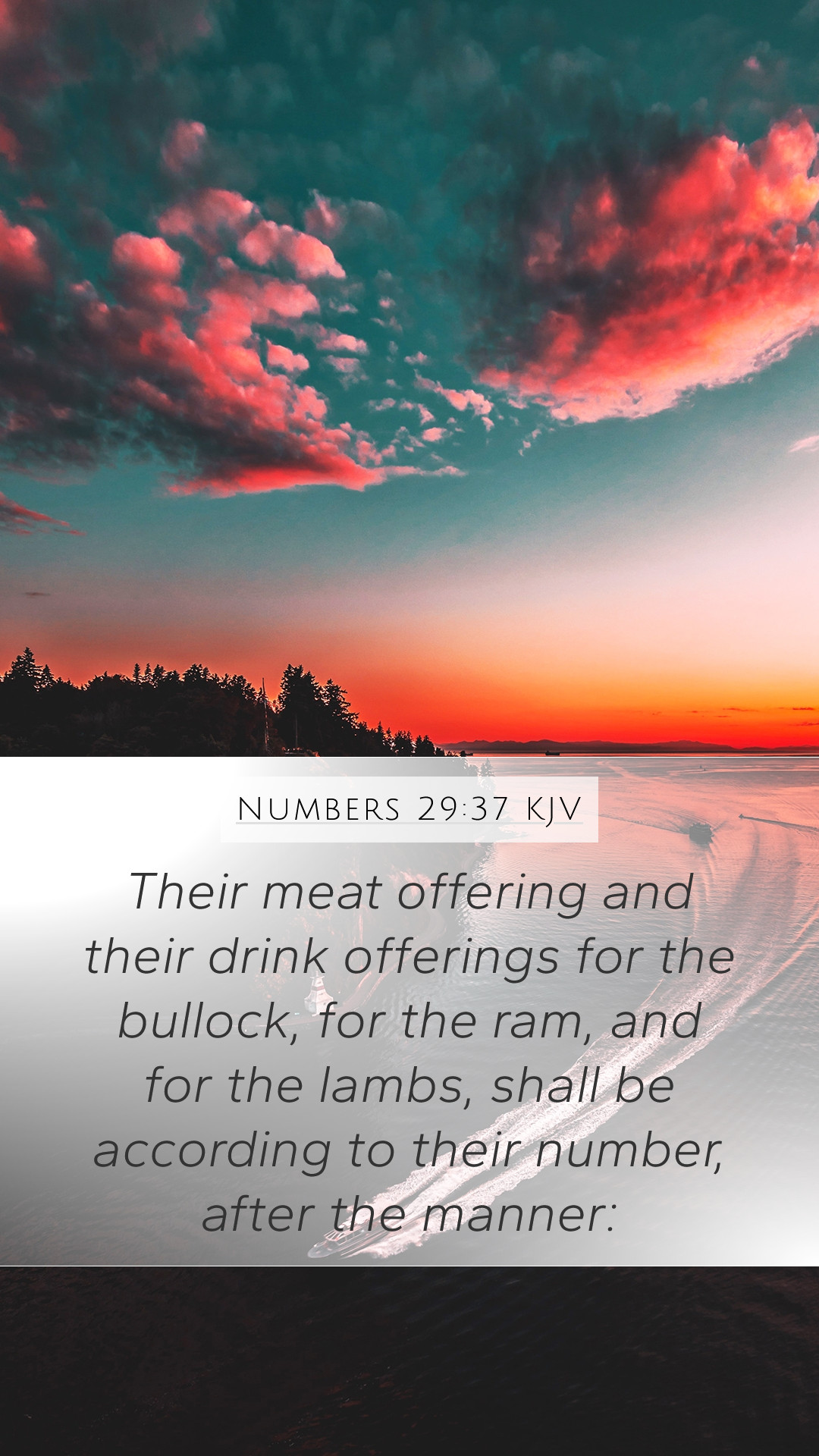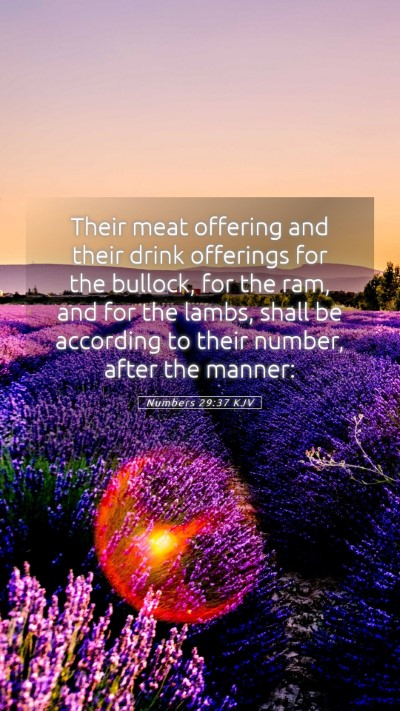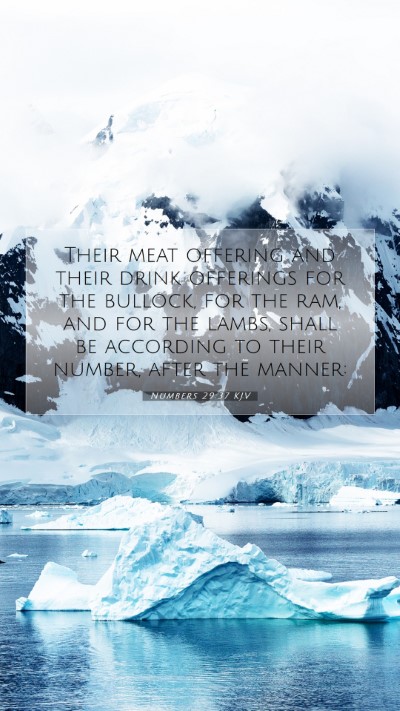Understanding Numbers 29:37
Verse: Numbers 29:37
“These are the burnt offerings which you shall offer to the LORD at your appointed feasts, in addition to your regular burnt offerings and its grain offering, and their drink offerings, according to their ordinance for a sweet aroma. This is the offering made by fire to the LORD.”
Bible Verse Meanings and Commentary
The verse from Numbers 29:37 pertains to the offerings that are to be presented to the Lord during significant feasts. This instruction underscores the importance of both regular and special offerings in maintaining a relationship with God. The following insights are gathered from renowned public domain commentaries, providing a comprehensive understanding of this verse.
Matthew Henry's Commentary Insight
Matthew Henry emphasizes that the burnt offerings prescribed in this verse reflect the need for atonement and reverence toward God. He notes that these offerings are not just rituals but are laden with spiritual significance. They symbolize complete surrender to God, akin to the dedication of the entire life to divine service. Moreover, these offerings, especially during feasts, were meant to express gratitude and devotion, enriching the communal worship experience within the Israelite community.
Albert Barnes' Commentary Insight
Albert Barnes provides an analytical view that highlights the ritualistic aspect of burnt offerings. He mentions that the offerings were to be made with precision and adherence to divine ordinance. The phrase “sweet aroma” signifies the pleasure that God derives from such sincere worship. These offerings serve to remind the people of their covenant with God and the necessity of presenting themselves as holy and set apart. Barnes points out that the structure of the offerings also serves to foster a sense of unity among the Israelites, as they encountered God together in worship.
Adam Clarke's Commentary Insight
Adam Clarke takes a historical approach, reflecting on the cultural practices surrounding offerings in ancient Israel. He notes that burnt offerings were a common practice among various ancient civilizations; however, the specificity with which God prescribes these acts in Scripture sets Israel apart. Clarke observes that these rituals were integral to the community's identity and relationship with God, thus ensuring that worship was both a personal and corporate act. He underscores the significance of the appointed feasts as opportune moments for fellowship, reflection, and celebration of God’s faithfulness.
Application and Significance
The directive in Numbers 29:37 illustrates an important truth relevant to modern believers: the act of giving to God transcends mere monetary value; it is an expression of one's heart and devotion. Engaging with these biblical teachings fosters deeper Bible study insights and aids in understanding Scripture.
- Spiritual Reflection: Believers today are encouraged to reflect on their offerings—time, resources, worship—and consider how these acts express their relationship with God.
- Community Worship: The practice of offering during communal feasts serves as a model for contemporary church gatherings, where collective worship strengthens community bonds.
- Commitment to God: Offering oneself as a living sacrifice (Romans 12:1) parallels the essence of burnt offerings, promoting a holistic approach to dedication and service in both personal and communal contexts.
Cross References
- Leviticus 1:9: Description of burnt offerings and their purpose.
- Psalm 51:17: The sacrifices that God desires are a broken spirit and contrite heart.
- Romans 12:1: Call to present our bodies as living sacrifices, holy and acceptable to God.
Conclusion
Numbers 29:37 encapsulates the essence of offering in the Israelite tradition—rooted in atonement, gratitude, and communal worship. By understanding this verse through the lenses of Matthew Henry, Albert Barnes, and Adam Clarke, believers can gain a richer insight into the significance of their offerings and the heart behind worship. The insights also contribute to a broader understanding of Scripture, guiding Bible study groups seeking deeper clarification and relevance in their studies. By engaging with the meanings and interpretations of such verses, one can cultivate a meaningful relationship with God and community through Christ.


